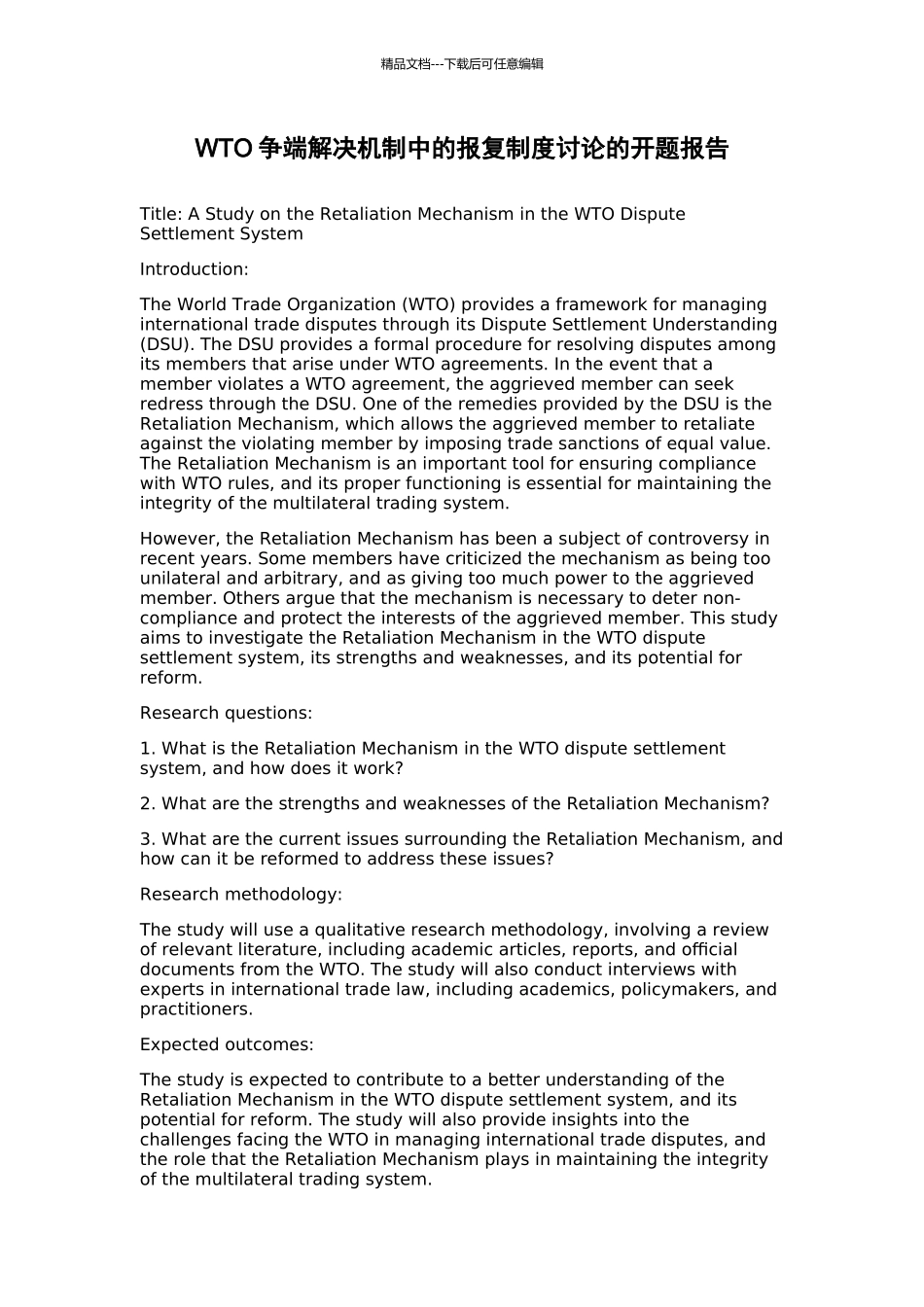精品文档---下载后可任意编辑WTO 争端解决机制中的报复制度讨论的开题报告Title: A Study on the Retaliation Mechanism in the WTO Dispute Settlement SystemIntroduction:The World Trade Organization (WTO) provides a framework for managing international trade disputes through its Dispute Settlement Understanding (DSU). The DSU provides a formal procedure for resolving disputes among its members that arise under WTO agreements. In the event that a member violates a WTO agreement, the aggrieved member can seek redress through the DSU. One of the remedies provided by the DSU is the Retaliation Mechanism, which allows the aggrieved member to retaliate against the violating member by imposing trade sanctions of equal value. The Retaliation Mechanism is an important tool for ensuring compliance with WTO rules, and its proper functioning is essential for maintaining the integrity of the multilateral trading system.However, the Retaliation Mechanism has been a subject of controversy in recent years. Some members have criticized the mechanism as being too unilateral and arbitrary, and as giving too much power to the aggrieved member. Others argue that the mechanism is necessary to deter non-compliance and protect the interests of the aggrieved member. This study aims to investigate the Retaliation Mechanism in the WTO dispute settlement system, its strengths and weaknesses, and its potential for reform.Research questions:1. What is the Retaliation Mechanism in the WTO dispute settlement system, and how does it work?2. What are the strengths and weaknesses of the Retaliation Mechanism?3. What are the current issues surrounding the Retaliation Mechanism, and how can it be reformed to address these issues?Research methodology:The study will use a qualitative research methodology, involving a review of relevant literature, including academic articles, reports, and official documents from the WTO. The study will also conduct interviews with experts in international trade law, including academics, policymakers, and practitioners.Expected outcomes:The study is expected to contribute to a better understanding of the Retaliation Mechanism in the WTO dispute settlement system, and its potential for reform. The study will also provide insights into the challenges facing the WTO in managing international trade disputes, and the role that the Retaliation Mechanism plays in maintaining the integrity of the multilateral trading system.
